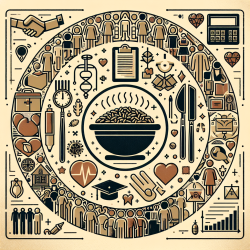Introduction
In a world that is increasingly interconnected, migration is a common phenomenon. Montreal, Canada, is no exception, with over half of all births attributed to migrant women. This presents unique challenges for healthcare professionals tasked with providing maternity care to these women, especially those from non-Western countries. A recent study sheds light on these challenges and offers insights for healthcare practitioners to improve their services.
Understanding the Challenges
The study conducted interviews with 63 healthcare professionals, including physicians, nurses, and social workers, from four teaching hospitals in Montreal. The aim was to explore the challenges faced by newly-arrived migrant women from non-Western countries when accessing maternity care. The findings revealed two primary levels of challenges:
- Direct Care Challenges: These include understanding Canadian healthcare expectations and effective communication with healthcare professionals.
- Organizational Challenges: These involve accessing appropriate healthcare services, influenced by the migrant woman's background and social position, such as education and health literacy.
Implications for Healthcare Professionals
Healthcare professionals must recognize the complexity of these challenges, which are often driven by conflicting values between migrant women's sociocultural backgrounds and Canadian maternity care guidelines. To improve outcomes for these women, practitioners should consider the following strategies:
- Cultural Sensitivity Training: Engage in training programs that enhance understanding of diverse cultural practices and beliefs.
- Improved Communication: Utilize interpreters and culturally appropriate communication tools to ensure effective dialogue with patients.
- Policy Advocacy: Advocate for policies that accommodate the unique needs of migrant women, ensuring equitable access to care.
Encouraging Further Research
The study highlights the need for further research to understand the nuances of providing maternity care to migrant women. Healthcare professionals are encouraged to participate in or initiate research projects that explore:
- The impact of acculturation on healthcare access and outcomes.
- Barriers and facilitators experienced by healthcare providers in delivering culturally sensitive care.
- The effectiveness of existing policies and the need for new interventions.
Conclusion
Healthcare professionals play a critical role in shaping the maternity care experiences of migrant women. By embracing cultural sensitivity and advocating for inclusive policies, practitioners can help bridge the gap between standard healthcare practices and the unique needs of migrant populations. This not only improves health outcomes but also fosters a more inclusive healthcare environment.
To read the original research paper, please follow this link: Challenges newly-arrived migrant women in Montreal face when needing maternity care: Health care professionals’ perspectives.










